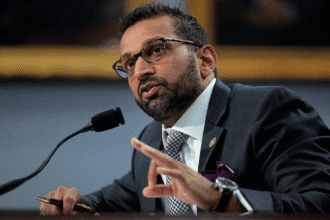Susan Monarez, who led the US CDC for just 29 days, claims she was dismissed for refusing to sign off on changes to the CDC vaccine policy that bypassed scientific review. She said Health Secretary Robert F. Kennedy Jr. asked her to approve all vaccine recommendations from his chosen advisory board, even those not backed by evidence. She also received demands to dismiss career officials without justification. When Monarez resisted, she was fired. Other top officials resigned in solidarity soon after.
What Was Monarez Asked to Do?
Kennedy allegedly ordered Monarez to accept all advisory board proposals ahead of examining the science. He also directed her to fire experienced vaccine policy experts, even if there was no cause. Monarez said she could not in good conscience comply. She asserted these actions contradicted her ethical obligations and professional commitment to science.
How Did the Advisory Board Factor In?
Kennedy had replaced all 17 members of the CDC’s Advisory Committee on Immunization Practices (ACIP) with new appointees. Some of these members are known to be critical of established vaccine guidelines. Monarez said she was expected to “rubber‑stamp” ACIP decisions, regardless of scientific merit. She refused unless there was data to support any changes. Read another article on the Norovirus vaccine UK
What Did Her Removal Trigger?
After Monarez’s dismissal, several senior CDC figures—among them the chief medical officer—resigned, citing diminished independence and integrity in vaccine policy oversight. Critics warn that unscientific changes could limit access to essential vaccinations. Monarez testified these demands posed risks to public health, including possible return of preventable diseases.
Why Is This Important Now?
The US is in a charged moment for public health policy. Before Monarez’s removal, vaccine advisory schedules were longstanding and based on decades of research. Now, critics fear that political influence might override scientific data. Monarez argues decisions must be grounded in evidence—not in ideology or political preference. The upcoming ACIP meeting is seen as a critical test of whether science or politics will steer national vaccine recommendations.
Final Thoughts
The allegations from Susan Monarez spotlight a troubling direction in CDC vaccine policy. When scientific evidence is sidelined, trust erodes. As experts warn, public health depends on transparency and integrity. The current moment could become defining—for better or worse—for how vaccines are governed. Only through courage, oversight, and commitment to truth can the CDC vaccine policy reclaim its foundation. The sooner this happens, the stronger the public’s health and confidence will be.








